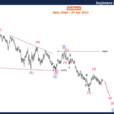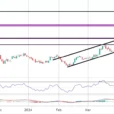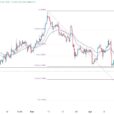The unusual feature about the UK’s Q3 2017 performance is that the focus is not so much on an analysis of the underlying trends to see if a “Brexit” factor is dragging the economy back, or points towards an Eldorado for UK businesses as the nation moves into an unseen space and “leads the world” in ridiculously lucrative free trade deals. Whilst scrutiny of the data for portents of a Brexit slide is happening, the broader focus is on what the Q3 data means in terms of the likelihood of a first Bank of England rate hike since 2007 when they stood at a dizzying 5.75%.
First things first. The UK economy grew at a rate of 0.4% in Q3 over the previous quarter which produced growth of 0.3%. The increase in UK output is plainly modest, but comes on the back of a rebound (well…) in the service sector which dominates the UK economy and enjoyed Q3 growth itself of 0.4%.
Plainly, it is impossible to know how the UK economy would have fared if the EU referendum vote had returned a remain vote, but it is safe to say that growth would have been more robust and inwards investment stronger for the simple reasons that business hates uncertainty which is what the Brexit vote has produced in abundance. It is also quite likely that in such a scenario, the Bank of England would not have needed to boost QE activities and would probably have followed the lead of the Federal Reserve in starting to normalise rates.
The Bank of England is on the horns of a dilemma: on the one hand, inflation is running at 3%, well over their target level of 2% and wage inflation lags behind it meaning that consumers have less disposable income. On the other hand (government cheerleaders notwithstanding), the UK economy is relatively weak and any rise in the cost of borrowing would risk a further slowing of it. An increase in the interest rate would bolster Sterling, partially offsetting the a degree of price inflation due to the higher cost of imported goods and materials (but this may not be passed on to consumers), but would erode the advantage that UK exporters currently enjoy because of Sterling’s relative weakness.













Leave A Comment